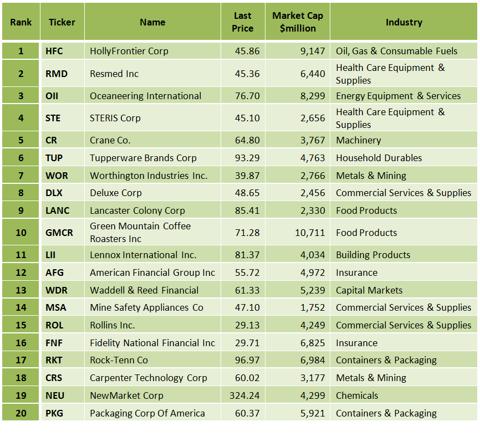Contents:


Other types of investment securities can include money-market securities for quick conversion to cash. Hybrid securities are, as their name suggests, something of a cross between equity and debt securities. An example of a hybrid security would be convertible bonds – bonds that can be converted into shares of common stock in the issuing company. Equity warrants are also hybrid securities – these are options issued by a company giving shareholders the right to buy stock within a specific period at a particular price. Many types of marketable securities are readily accessible to individual investors including stocks, bonds, mutual funds, and ETFs.
Among brokerages and mutual fund companies, a large amount of mutual fund share transactions take place among intermediaries as opposed to shares being sold and redeemed directly with the transfer agent of the fund. Most of these intermediaries such as brokerage firms clear the shares electronically through the National Securities Clearing Corp. or “NSCC”, a subsidiary of DTCC. Bonds, bank notes , and Treasury notes are all examples of debt securities. They all are agreements made between two parties for an amount to be borrowed and paid back – with interest – at a previously-established time. Convertible preferred stock is a hybrid security that gives holders the option to convert their preferred stock into common shares after a defined date.
Nevertheless, securities can be stocks, bonds, mutual funds, interest-bearing Treasury bills, notes, derivatives, warrants, and debentures. Furthermore, interests in oil-drilling programs are also considered securities. The legal entity that issues securities is the issuer of the security. Debt securities differ from equity securities in an important way; they involve borrowed money and the selling of a security. They are issued by an individual, company, or government and sold to another party for a certain amount, with a promise of repayment plus interest. They include a fixed amount , a specified rate of interest, and a maturity date .
Security (finance)
However, bondholders continue to take precedence over preferred shareholders. Bonds may continue to earn interest while preferred share dividends go unpaid even during a financial crisis. Retirement accounts, like individual retirement accounts , and 401s, offer some variation of mutual funds, stocks, and variable annuities. Some offer brokerage accounts, so you can invest in stocks, bonds and other assets. These contracts can be used to trade any number of assets and carry their own risks. Prices for derivatives derive from fluctuations in the underlying asset.
What Is a Financial Security? – The Motley Fool
What Is a Financial Security?.
Posted: Wed, 12 Apr 2023 07:00:00 GMT [source]
Each of these categories contains a variety of specific securities. Money market securities are the most liquid, and the majority of money market securities are short-term bonds purchased in bulk by large financial institutions. At that point, the issuer repays the principal balance of their initial debt obligation.
Are you aware of the term ‘Securities’ and ‘Securities Markets’?
Investment securities at banks are subject to capital restrictions. For example, the number of Type II securities or securities issued by a state government is restricted to 10% of the bank’s overall capital and surplus. The value of a company’s stock can fluctuate significantly depending on the industry and the specific business. However, many people earn a comfortable living by investing in stocks. When you buy a bond, you’re lending money to a company, government entity, or municipality. The lender promises to pay you back by a certain time along with a specified rate of interest.
Credit rating agencies evaluate a debt security to provide a professional opinion about the ability of the issuer to meet the obligations for payment of interest and return of principal as indicated in the security. They use rating symbols to rank debt issues, which enable investors to assess the default risk in a security. Local governments and municipalities may also issue debt securities to meet their development needs.

If, however, a company invests in another company’s equity in order to acquire or control that company, the securities aren’t considered marketable equity securities. The company instead lists them as a long-term investment on its balance sheet. If the stock is expected to be liquidated or traded within one year, the holding company will list it as a current asset. Conversely, if the company expects to hold the stock for longer than one year, it will list the equity as a non-current asset.
The securities market has two interdependent and inseparable segments, viz., the primary market and secondary market. The primary market, also called the new issue market, is where issuers raise capital by issuing securities to investors. The secondary market also called the stock exchange facilitates trade in already-issued securities, thereby enabling investors to exit from an investment. The risk in a security investment is transferred from one investor to another in the secondary markets. The primary market creates financial assets, and the secondary market makes them marketable. Bonds are the most common type of marketable debt and can be an excellent source of capital for growing businesses.
Private placements
For example, what are securities in non-public companies can only be bought or sold in very limited circumstances. The definition of a security offering was established by the Supreme Court in a 1946 case. Stock represents an equity investment because shareholders maintain partial ownership in the company in which they have invested. The company can use shareholder investment as equity capital to fund the company’s operations and expansion. Ultra-short term funds hold a portfolio similar to liquid funds but with a slightly higher maturity to benefit from higher coupon income. Diversified equity funds invest across segments, sectors and sizes of companies.
- In most cases, companies strive to hold bonds as marketable securities.
- Modern technologies and policies have, in most cases, eliminated the need for certificates and for the issuer to maintain a complete security register.
- The Securities and Exchange Commission today announced the largest-ever award, nearly $279 million, to a whistleblower whose information and assistance led to the successful enforcement of SEC and related actions.
- An equity security represents ownership interest held by shareholders in an entity , realized in the form of shares of capital stock, which includes shares of both common and preferred stock.
- The fund pays out the maturity proceeds of the portfolio on the closing date.
Investment securities are a category of securities—tradable financial assets such as equities or fixed income instruments—that are purchased with the intention of holding them for investment. As opposed to investment securities, in general, securities are purchased by a broker-dealer or other intermediary for quick resale. Stocks give you, the shareholder, a portion of ownership in a company. If you’re young, investing in stocks for the long-term is a good idea. But if you’re older and closer to retirement, you might consider something less risky, like bonds.
Corporate and government bonds, including municipal bonds and treasury bonds, are all examples of common debt securities. Government bonds typically pay lower interest rates than corporate bonds but have a high level of liquidity, making them easy to resell on the secondary bond market. Debt securities, also called fixed-income securities, enable governments and corporations to raise capital through publicly-traded loans in exchange for regular interest payments and principal repayment. The investor is the lender in the case of debt securities, while the issuer is the borrower. The issuer of debt security pays interest to the investor until the loan reaches maturity.
The bond market is the collective name given to all trades and issues of debt securities. Banks often purchase marketable securities to hold in their portfolios; these are usually one of two main sources of revenue, along with loans. Investment securities can be found on the balance sheet assets of many banks, carried at amortized book value . Shareholders retain a portion of the company they invest in, and stock represents their ownership rights. The company can use shareholder equity to fund operations and expansion.
Companies issue securities to raise short and long term capital for conducting their business operations. The risk for cryptocurrencies being classified as securities is that exchanges may not list them to avoid the risk of being fined by the SEC for listing unregistered securities. Since they are issued by the government, they carry no risk of default, and hence, are called risk-free gilt-edged instruments. Skilled at executing corporate priorities, driving profitability by implementing goal-oriented processes to achieve revenue and productivity targets, and managing company litigation and outside counsel. Recognized for creating policies and practices to address ethical dilemmas and resolving misconduct.
In the primary markets, securities may be offered to the public in a public offer. Alternatively, they may be offered privately to a limited number of qualified persons in a private placement. The distinction between the two is important to securities regulation and company law. Privately placed securities are not publicly tradable and may only be bought and sold by sophisticated qualified investors. As a result, the secondary market is not nearly as liquid as it is for public securities. There is another type of marketable security that has some of the qualities of both equity and debt.
I suppose we will end up finding a number of answers to that question. Will some ChatGPT-style large language model manage to do some insider trading? Will it, like, ingest some corpus of data that includes inside information, and then use it to answer questions like “which stocks should I buy? Will the model itself become sentient, get a Robinhood account and use that information nefariously? Fixed income refers to assets and securities that bear fixed cash flows for investors, such as fixed rate interest or dividends.
Sometimes companies sell stock in a combination of a public and private placement. Marketable securities are financial assets that can be easily bought and sold on a public market, such as stocks, bonds, and mutual funds. These securities are listed as assets on a company’s balance sheet because they can be easily converted into cash.
Many insurance agents and financial planners also hold the Series 7 license to facilitate transactions inherent in their businesses. Principals of general representatives must also obtain the Series 24 license. Securities are a kind of financial asset, but not all financial assets are securities. Things like bank deposits are financial assets, but not securities. Remember, though, that investing can be risky, so you should do your own research.
To hedge this risk, the investor could purchase a currency derivative to lock in a specific exchange rate. Derivatives that could be used to hedge this kind of risk include currency futures and currency swaps. Marketable debt securities are held as short-term investments and are expected to be sold within one year. If a debt security is expected to be held for longer than one year, it should be classified as a long-term investment on the company’s balance sheet.
Operation Lone Star Readies Security Forces Ahead Of Title 42 … – Office of the Texas Governor
Operation Lone Star Readies Security Forces Ahead Of Title 42 ….
Posted: Fri, 05 May 2023 18:25:18 GMT [source]
Preferred shares have the benefit of fixed dividends that are paid before the dividends to common stockholders, which makes them more like bonds. In the event of financial difficulties, bonds may continue to receive interest payments while preferred share dividends remain unpaid. Uniform Gift to Minors Act custodial accounts allow you to invest in many different types of securities, including stocks, bonds, mutual funds, annuities and insurance policies. Parents can open up an account on behalf of their child and transfer ownership once the child reaches 18 or 21, depending on the laws of the state the plan is in. Derivatives can be a very convenient way to achieve financial goals.
A speculator who expects the euro to appreciate versus the dollar could profit by using a derivative that rises in value with the euro. When using derivatives to speculate on the price movement of an underlying asset, the investor does not need to have a holding or portfolio presence in the underlying asset. The term derivative refers to a type of financial contract whose value is dependent on an underlying asset, group of assets, or benchmark. A derivative is set between two or more parties that can trade on an exchange or over-the-counter .

